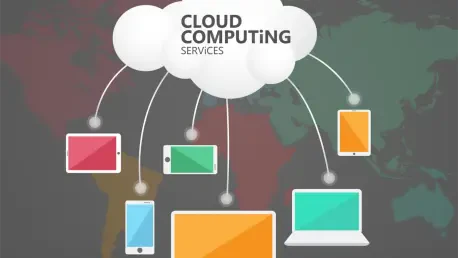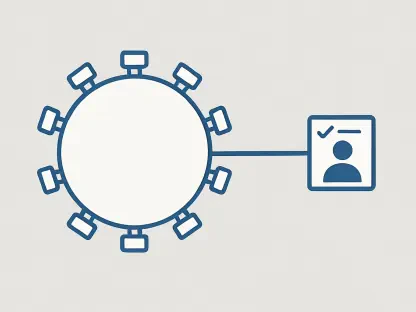In today’s rapidly evolving global market, logistics stands as a critical pillar supporting intricate supply chain networks. The Philippines, with its complex geography comprising more than 7,000 islands, poses unique challenges for efficient logistics operations. As industries globally shift towards digital solutions, the Philippine logistics sector finds itself at a crossroads. The question is whether cloud technology can address the fragmented logistics systems and streamline operations across this archipelagic nation. The drive towards modernization is not just a trend but a necessity, given the demands for agility, transparency, and resilience in logistics. Can cloud technology bridge the existing gaps, and if so, what transformation does it promise?
Unifying Fragmented Systems
Breaking Down Operational Silos
The logistics industry in the Philippines has traditionally been plagued by operational silos, where different entities such as customs, freight forwarders, and warehouse operators function independently. This independent operation often results in efficiency losses and duplicated efforts—an issue cloud technology aims to resolve. By facilitating real-time data sharing, cloud platforms provide stakeholders with a seamless and synchronized view of operations. This connectivity reduces errors and enhances coordination, setting a new standard for efficiency. The potential to operate with a unified system generates an environment conducive to collaborative strategies, leading to more streamlined logistics processes.
Despite the apparent benefits, the shift to cloud-based solutions is not without challenges. Investments in digital infrastructure and workforce training are critical components of this transition. However, the rewards, such as reduced operational silos and improved data accuracy, justify these initial efforts. Moreover, adopting cloud solutions positions companies to leverage emergent technologies like AI and machine learning, further enhancing operational efficiencies. Reduced response times and improved communication between independent entities translate to faster and more reliable service delivery—a crucial advantage in a competitive market.
Real-Time Visibility and Customer Satisfaction
In an era where customers demand constant updates, real-time visibility becomes a key standard for logistics operations. Cloud technology offers detailed insights into shipment statuses and other supply chain performance metrics. Companies can proactively manage delays, leading to increased customer satisfaction. The ability to track goods from origin to destination allows businesses to make informed decisions quickly, addressing potential bottlenecks before they escalate into significant issues. This transparency builds trust and loyalty among customers, providing a competitive edge in an industry where customer experience is paramount.
The integration of cloud technology into logistics practices also aligns with the global trend towards more sustainable operations. By optimizing routes and reducing redundancies, companies can lower their carbon footprints, contributing positively to environmental sustainability goals. Additionally, as logistics firms leverage cloud data analytics, they gain insights into consumer behaviors and market trends, allowing for more tailored services. This information becomes the basis for continuous improvement, making logistics not only more efficient but also more customer-centric.
Enhancing Agility and Resilience
Bypassing Costly Infrastructure
One of the standout advantages offered by cloud technology is the potential to bypass the need for costly on-premise infrastructure. This aspect democratizes access to advanced logistics tools, enabling smaller and mid-sized operations to compete at the level of larger firms. The financial barrier that startups previously faced diminishes, allowing innovative processes and strategies to flourish. This democratization is crucial for an industry often dictated by financial power, leveling the playing field and encouraging a more diverse range of companies to innovate within the logistics space.
Cloud systems also allow for scalable solutions that adapt as businesses grow or enter new markets. This flexibility reduces risks associated with fluctuating demand and helps companies maintain consistent service levels. Furthermore, cloud-based logistics management systems facilitate quick adaptation to regulatory changes or market dynamics. This resilience is particularly vital in the Philippines, a nation regularly affected by natural disruptions such as typhoons and earthquakes. Cloud platforms provide the necessary continuity in operations, safeguarding data and ensuring that logistics networks remain operational during crises.
Resilience Against Natural and Technical Challenges
The geography of the Philippines makes it highly susceptible to natural calamities, which can disrupt logistics operations significantly. With cloud technology, data and process continuity are maintained even during adverse conditions. This resilience ensures that operations do not come to a standstill, providing stakeholders with the live data needed to make contingency plans. By shifting critical logistics processes onto the cloud, businesses can safeguard against losses and maintain supply chain fluidity in the face of unpredictable challenges.
Moreover, technical challenges that could cripple logistic operations, such as cyber threats or data breaches, can be effectively managed with cloud technology. With robust security protocols and automated backups, cloud platforms offer a fortified defense against potential disruptions. This protective layer not only enhances the security of logistics processes but also builds confidence among international partners and clients. As the logistics industry leans toward digitalization, such assurances are invaluable, securing both domestic and global interests in the Philippine logistics market.
Future Prospects and Innovations
Paving the Way for AI and Machine Learning
Cloud technology is increasingly seen as foundational, preparing Philippine logistics for future innovations. Its platforms are critical for integrating AI and machine learning, which promise to revolutionize logistics by automating routine tasks and optimizing decision-making processes. As a result, these technologies can deliver predictive analytics, giving businesses foresight into potential logistical issues before they manifest. This foresight is invaluable, enabling more dynamic and responsive supply chain management. AI-driven insights facilitate proactive measures, allowing for timely interventions that enhance service delivery and minimize disruptions.
The possibilities do not end with AI and machine learning. Cloud technology is also pivotal for incorporating Internet of Things (IoT) solutions, which can enhance tracking mechanisms and provide real-time data from smart sensors. Such advancements permit a higher granularity of monitoring, offering unparalleled visibility across the supply chain network. This comprehensive oversight facilitates informed strategic decisions, streamlining operations while maximizing resource utilization. In a global market that increasingly values precision and efficiency, leveraging IoT solutions via cloud technology positions the Philippine logistics sector to thrive.
Strategic Transition Towards Global Competitiveness
In the fast-paced global market we see today, logistics plays a pivotal role in upholding the intricate networks of supply chains. The Philippines, with its intricate geography consisting of over 7,000 islands, presents unique challenges for efficient logistical processes. As industries worldwide pivot towards digital solutions, the logistics sector in the Philippines faces a critical juncture. The pressing question is whether cloud technology can solve the fragmented logistics systems and enhance operations throughout this archipelagic nation. Modernization is more than a mere trend; it’s a necessity considering the growing demands for agility, transparency, and resilience within logistics. Could cloud technology serve as the bridge over these existing gaps, fostering transformation, and what changes does it promise for the future of Philippine logistics? Embracing advanced technology might lead to increased efficiency, transforming not just processes but potentially revolutionizing the logistics landscape in the entire nation.









